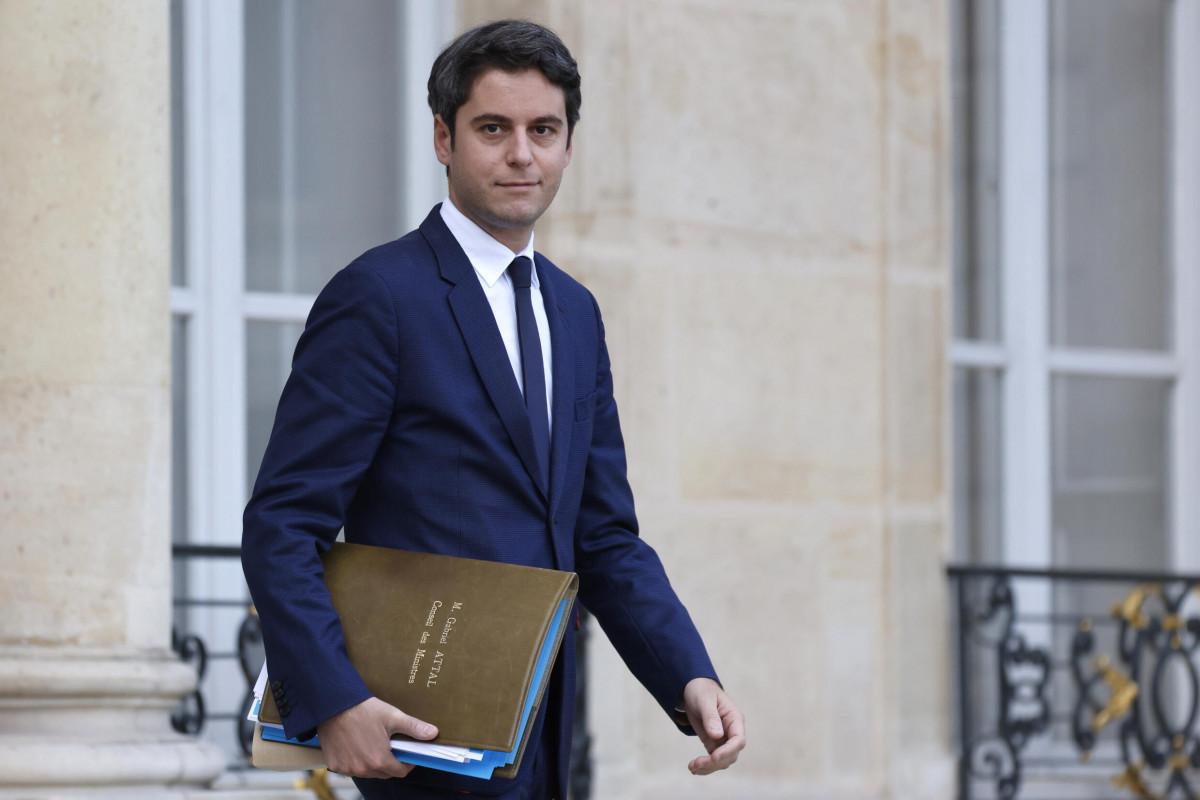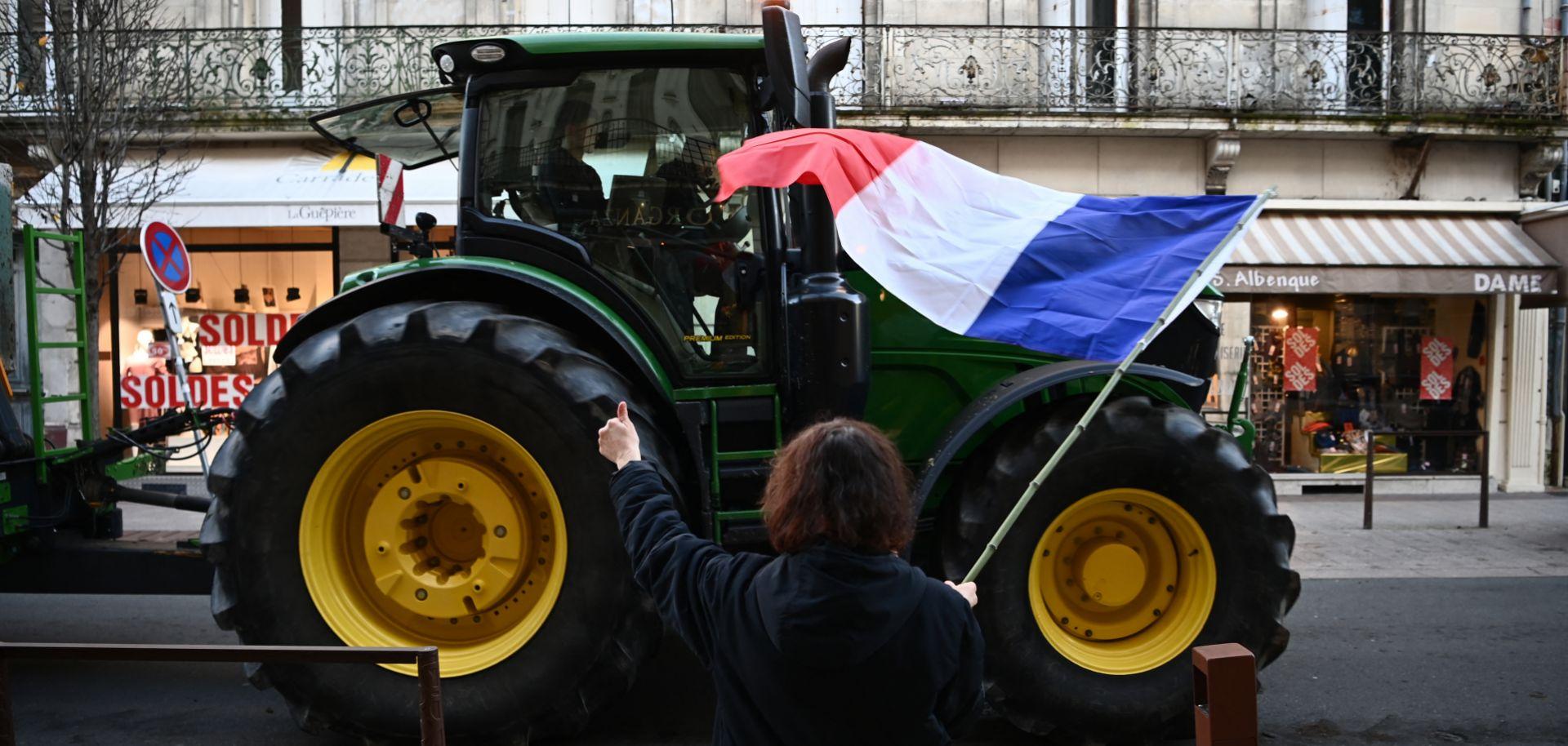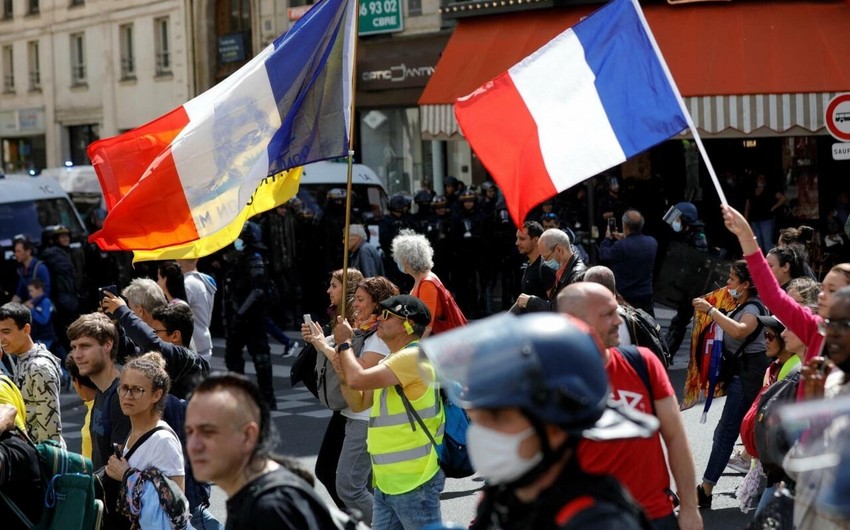The wave of mass protests staged by the farming community in France, has exposed the most uncomfortable truths for the French political establishment. How should the country react and what measures to take. Following weeks of mass events, the agriculture community in France has undeniably shifted the narrative in the media against itself and yet the political bloc is making serious indulgences towards the farmers. To the point, where the French publiс that staunchly supports the measures taken by the community starts to question whether the rights of the French farmers are above interests and rights of the other citizens.
Prime Minister Gabriel Attal acknowledged Sunday that longstanding rules have been throwing “sticks in the wheels” and heaping new burdens on farmers over recent decades, and lamented that politics seemed to be pitting farmers against the environment. While he announced some concessions on Friday, Attal said he was well aware that the government had not yet addressed the issues at the root of the farmers’ grievances.

"We have decided to put agriculture above all the rest,” French Prime Minister Gabriel Attal said as he outlined a first package of measures during a visit Friday to a farm in the Haute-Garonne department in southern France.
Attal pledged to freeze taxes on diesel fuel used by tractors and other agricultural machines in a step-back from measures announced last year, when Paris decided to progressively remove an existing fiscal advantage for agriculture diesel to foster the green transition and bring more money into state coffers. He also promised to limit administrative hurdles for farmers by halving (from 4 to 2 months) the delay to launch a legal action against authorizations for farm works such as the expansion of a barn.
Key agriculture union leaders seemed unimpressed by the government’s promises. Plans for a full-scale action haven’t changed, said Arnaud Rousseau, head of the FNSEA farmers’ union. Speaking to BFMTV from a barricade near Beauvais, north of Paris, Rousseau told farmers to rest up ahead of a week “full of dangers.”

All the while the support of the public is on the farmer’s side. Macron and his Cabinet members have tried to portray themselves as sympathetic to the farmers as Marine Le Pen’s far-right National Rally attempts to capitalize on the discontent ahead of June’s European election. A recent poll showed 82 percent of those surveyed backed the farmers’ protests. But only 17 percent thought the government had been up to the task in its handling of the situation.
Despite national support, the farming community seems to use the situation to create a maxim pressure on Macron’s government. Seemingly, the French government doesn’t want the repetition of the gilets jaunes protests and understands the value and importance of the people feeding the nation, creating rather a new method. A method that many French people don’t seem to appreciate. The extremely soft approach on the protesters reminds the public of excessive force used by the French police on other occasions.
"We don't respond to suffering by sending in the CRS (French special police units). Guest on the TF1 news on Thursday November 25, Interior Minister Gérald Darmanin asked to "leave things alone" with farmers, who have been stepping up their actions.
"Are they attacking policemen and gendarmes, are they attacking public buildings, are they setting fire to public buildings? That's not the case," Mr. Darmanin explained. For the Minister of the Interior, "farmers are working and, when they want to demonstrate that they have demands, we have to listen to them". "As Minister of the Interior, at the request of the President and the Prime Minister, I let them do that," he added. Opposing them to "radical environmentalists" who "destroy basins" intended for irrigation, Gérald Darmanin said he had "confidence in farmers".
"If they respect the rules of the Republic - and they do, they're patriots - there's no reason to call in the police and gendarmes," he continued.
The French media website Liberation has a resounding answer to the questions posed by the Minister Darmanin. Yes, the French farming community is degrading public buildings and yes Minister Darmanin is publicly denying most obvious truths in a shockingly dismissive manner.
In an interview with TF1 channel Darmanin was presented with yet another questions that stupefied the French public. "Did you see the pictures in Bordeaux in front of the prefecture? Didn't they smash the gate at the entrance?" Darmanin then retorted: "As the elected representative of a region where there are also farmers, I'm used to the legitimate outbursts of those who are suffering and who don't have much money. There's no double standard, you can't compare things”
It is clear that Emmanuel Macron prioritizes the farming community as an important electorate for the upcoming European elections and in order to cement his future when he leaves the post. But the notion of absence of double standards voiced by the Gerald Darmanin is simply illogical and untrue.
Jamal Mustafayev


 https://static.report.az/photo/25a1872c-ed51-3244-b0b3-fb80abc8c0d0.jpg
https://static.report.az/photo/25a1872c-ed51-3244-b0b3-fb80abc8c0d0.jpg

